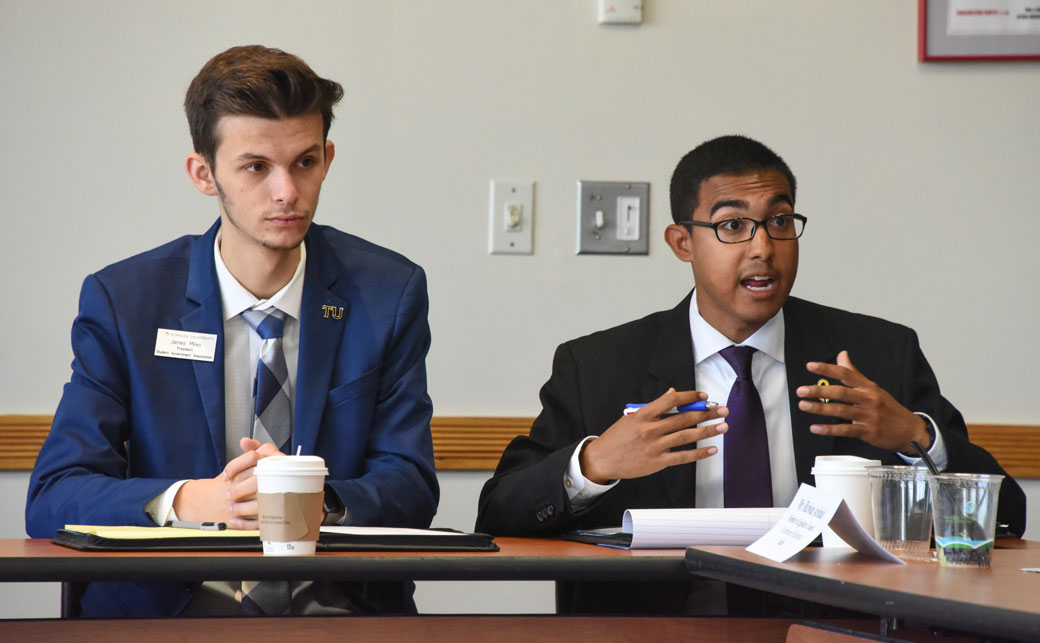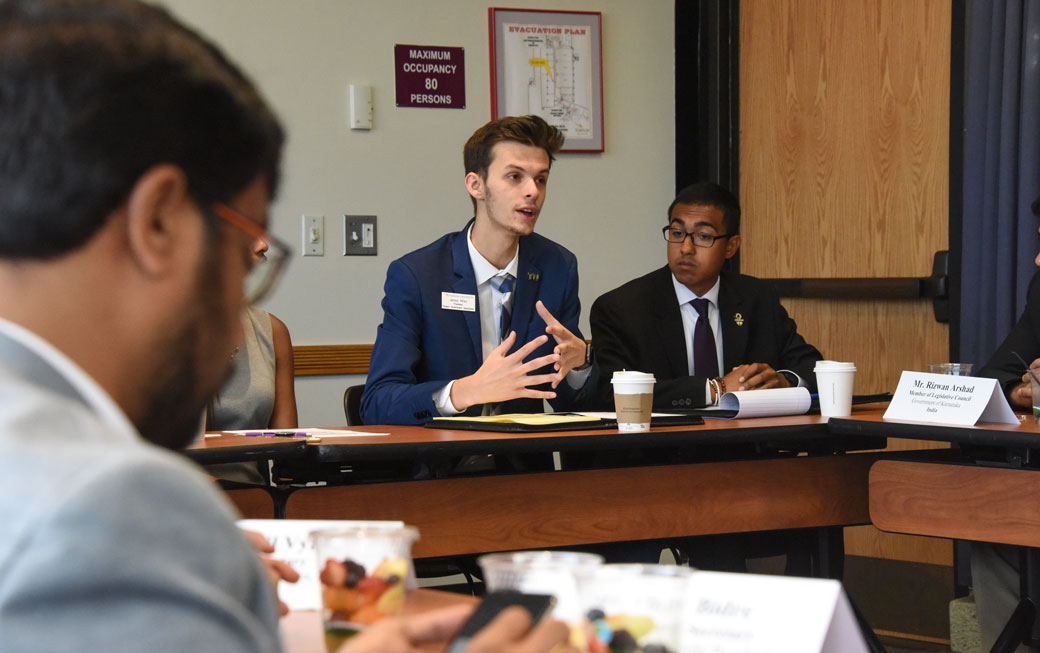
TU’s SGA talks student involvement with Indian politicians
Delegation representing multiple Indian political parties has “eye-opening” experience talking with Towson University’s student government.
By Kyle Hobstetter on October 18, 2017

Tanvir Sadiq was coming to the end of his three-week excursion to the United States. Starting in Washington D.C., traveling to Mount Rushmore in South Dakota, and meeting local government officials in Hawaii — the young Indian politician had seen a lot of what America has to offer.
But the political secretary for the former chief minister of India’s Jammu and Kasmir National Conference Party didn’t know what to expect when he stepped onto Towson University’s campus.
Sadiq was part of a delegation of nine young Indian politicians participating in the U.S. Department of State’s International Visitors' Leadership Program. As part of the program, the Indian delegation visited Towson University on Friday, October 6 to discuss how the Student Government Association engages students in the political atmosphere.
After spending an hour discussing multiple topics — including the SGA’s structure, how student voice is institutionalized on a state level and how the group advocates for students — Sadiq couldn’t stop praising his experience.
“Today’s interaction with the Student Government Association was an eye-opener for me,” Sadiq said. “It’s a full-fledged government here. They have a complete staff, and there is 97 years of history here. It’s a huge horizon for me. We can really do the same models back home in India at our universities.”
The delegation’s visit was scheduled through a partnership between the U.S. State Department and the World Trade Center Institute in Baltimore to allow the delegation to explore how the SGA encourages and recruits students to take leadership roles and influence political, social and economic change on campus and in the community.
The delegation was also interested in how the activities and responsibilities of the SGA are substantive in helping to train students in leadership roles and to take responsibility in the greater community.
When offered the opportunity to discuss these topics, SGA jumped at the chance to share its information with the traveling dignitaries.
“We’re grateful for the opportunity of them coming to TU and asking about our SGA,” said SGA President James Mileo ’18. “For people to recognize the work we do as influential and important means a lot to us.
“I think it shows how dedicated we are, and we really do serve the students. Our main priority is to bring awareness to student issues but also improve student life.”
Rizwan Arshad, president of the Karnataka Pradesh Congress Committee, was impressed with how much SGA is involved in campus decisions. This includes having three branches representing different aspects of student government, being in control of its own budget and meeting with campus administrators.
“This is the first Student Government Association which I met that has been empowered to make its own decisions,” Arshad said. “This is a wonderful model, which can be replicated around the world where young people can learn to stand up on their own and manage their systems and learn to pursue democracy.”
And after meeting with the delegation, the SGA was hoping that its experience with student government can influence others in different parts of the world.
“We think it would be great if they take with them how institutionalized we are,” Mileo said. “There is not a lot of institutionalized power for students, and they really liked how we have a centralized purpose. So we have hope that they are able to take our structure back to their constituents, so they can institutionalize their own students’ power.”
“We hope it gives them a voice on making changes and having a say about what is going on, in terms of policy. And not only in their university but also in local and federal government.”